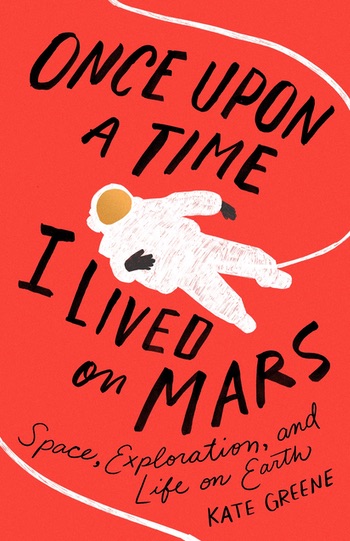Review: Once Upon a Time I Lived on Marsby Jeff Foust
|
| There was plenty to keep the crew busy on the simulation, but Greene writes that there was nonetheless their “own brand of monotony that began to wear us down” as the mission progressed. |
For the last couple of decades, a series of experiments in analog Mars habitats on Earth, from a Moscow laboratory to the Canadian Arctic, have explored some of those issues. One of them was the Hawai’i Space Exploration Analog and Simulation, or HI-SEAS, a habitat built on Mars-like terrain on the slopes of Mauna Loa. Crews spent up to a year at a time there to study some of the issues associated with long-duration missions.
One of the participants in the first, four-month HI-SEAS mission in 2013 was Kate Greene, a science journalist. In Once Upon a Time I Lived on Mars, she offers a series of essays about that experience and how it changed her life, and its implications for future exploration.
The HI-SEAS study, Greene writes, has its roots in something called “menu fatigue,” where astronauts on long-duration space station missions eat less food over time because of a lack of variety. On that four-month mission, Greene and her five crewmates took surveys after every meal, both on days where they ate prepared meals and “creative” days where they could create their own meals, dining communally.
The collection of essays touches on other aspects of the experience. Being isolated and without real-time communications (there was a time lag to simulate the delay in communications between Earth and Mars) affected their relationships with each other and with those in the outside world. There was plenty to keep the crew busy on the simulation, but Greene writes that there was nonetheless their “own brand of monotony that began to wear us down” as the mission progressed.
The essay collection goes beyond the specific experiences from HI-SEAS. One, inspired by the food studies and measurements of caloric intake, ponders who would be the best people to go to Mars, and makes the case for an all-woman crew that would require fewer resources. Others examine the benefits, and drawbacks, of public versus private exploration of Mars. Throughout the book, Greene reflects on how her life has changed since that HI-SEAS mission, including the death of her brother, end of her marriage, and a shift from journalism to writing essays and poetry.
HI-SEAS has also changed: a sixth mission, slated to last eight months, ended just days after it began in early 2018 when a one person was injured, requiring a brief hospitalization, and another decided to pull out of the mission. It’s unclear when, or even if, there will be future Mars mission simulations there, but what Once Upon a Time I Lived on Mars makes clear is that we still have a lot to learn about what it takes to survive and thrive on another world, lessons that go beyond science and technology.
Note: we are temporarily moderating all comments submitted to deal with a surge in spam.
